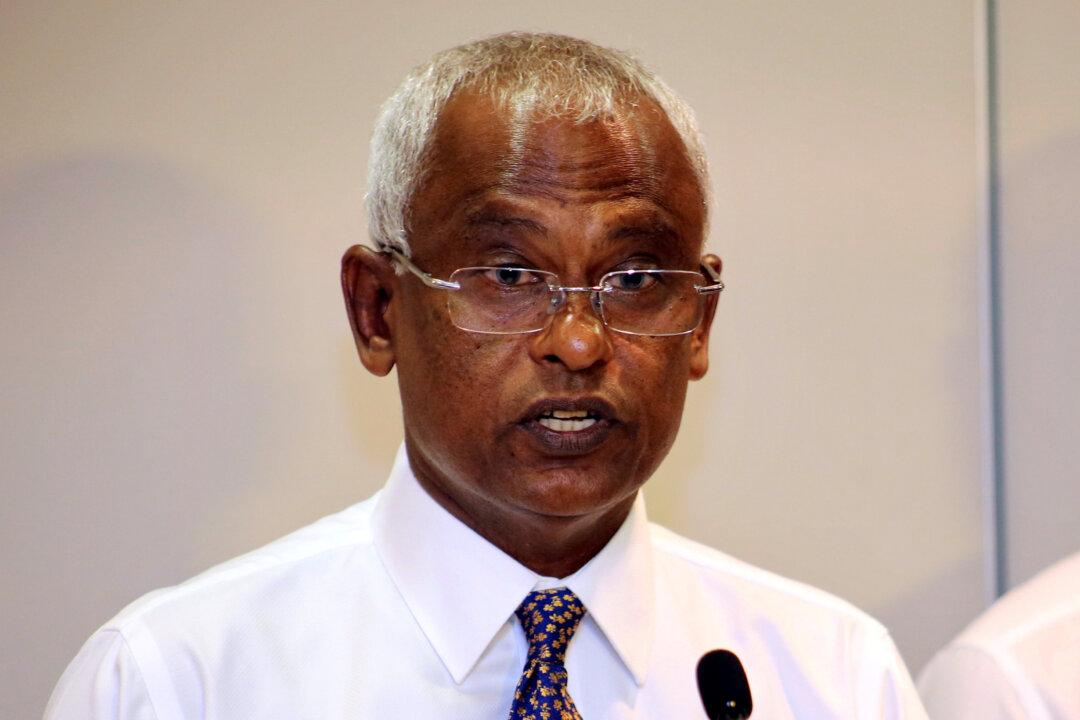MALE–The opposition was awarded victory in the Maldives presidential election on Sept. 24, in a possible setback for China as the new leaders of the Indian Ocean archipelago nation aim to review major projects agreed with the outgoing administration.
Incumbent Abdulla Yameen, who had cultivated ties with both Beijing and Saudi Arabia, conceded defeat after the Election Commission said opposition leader Ibrahim Mohamed Solih had won the Sept. 23 election by a margin of 16.7 percent.





